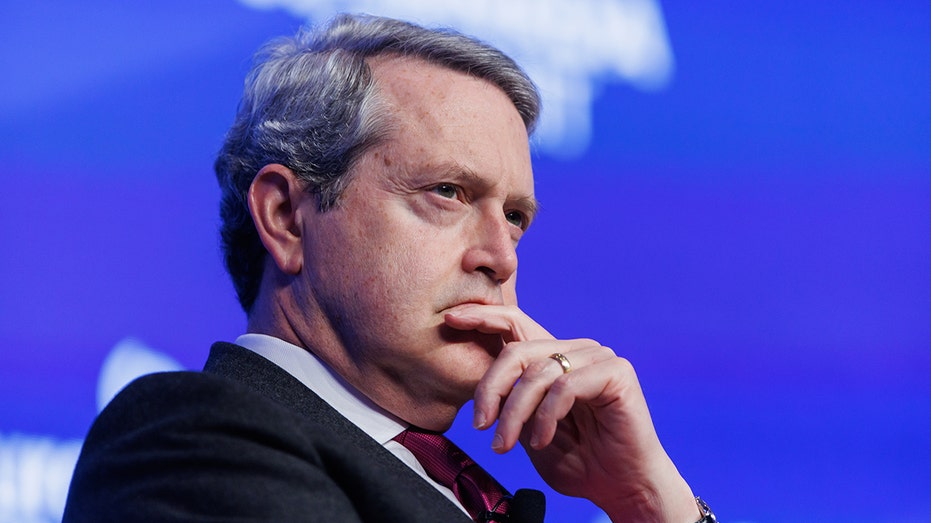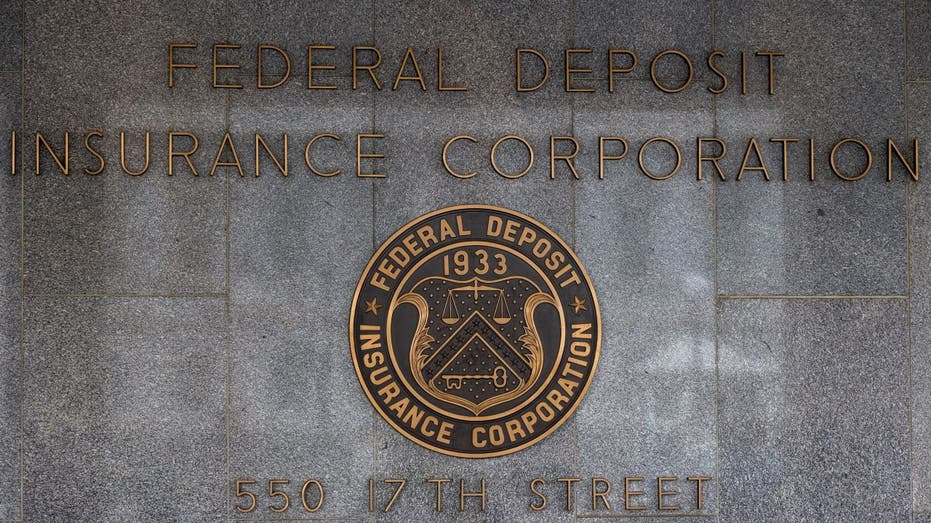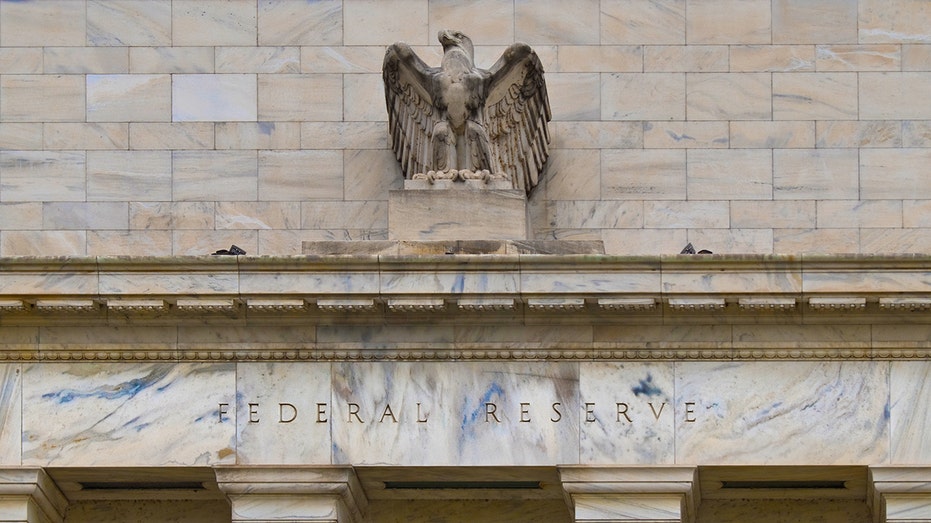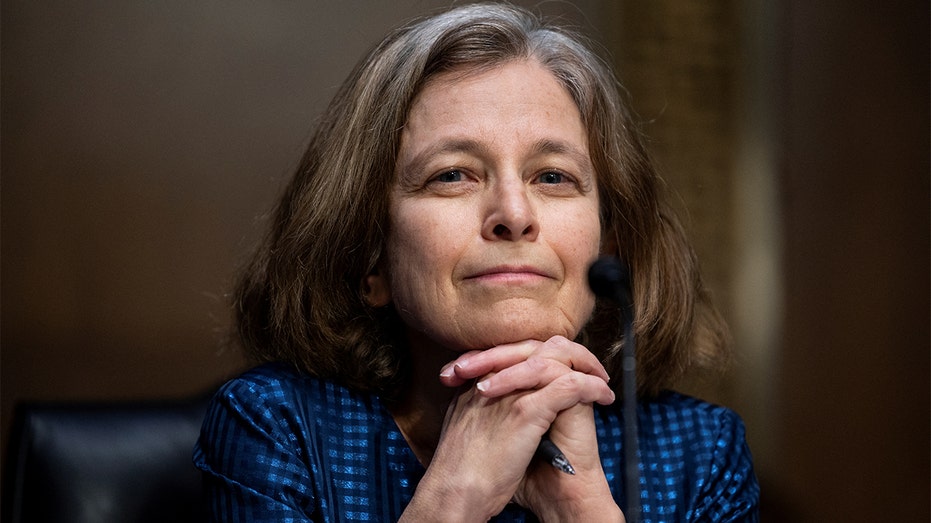Former Fed official's bank set to receive rare master account approval, raising eyebrows
The Federal Reserve has typically denied such requests from 'Tier-3' institutions
A recent move by the Federal Reserve to grant a little-known bank access to its vast lending and credit facilities is sparking questions about possible conflicts of interest and favoritism at the nation’s central bank, FOX Business has learned.
Numisma, a small bank based in Greenwich, Connecticut, received conditional approval for a so-called master account, which gives state-chartered institutions access to the Fed’s liquidity facilities, including payment services at wholesale rather than retail prices. Numisma is a private bank that describes itself as a "state-of-the art, tech-forward operating and service platform" and a "global distributor of U.S. banknotes."
A master account is not only a coveted asset for a state bank looking to establish itself, but also an official stamp of approval from the nation’s top banking regulator. In recent years, the Federal Reserve denied the vast majority of requests for other so-called Tier 3 institutions similar to Numisma that aren’t regulated at the federal level, according to bank executives and academics interviewed by FOX Business.
BIDEN FED NOMINEE SARAH BLOOM RASKIN WITHDRAWS BOARD CANDIDACY
So what gave Numisma its edge? Some banking executives point to its possible political clout.
Numisma’s co-founder, Randy Quarles, was the vice chair of the Fed and governor during the Trump administration.

Randal Quarles, former vice chair of the U.S. Federal Reserve, appears during the U.S.-Canada Summit in Toronto on April 4, 2023. (Getty Images)
In a statement, a Numisma spokesperson disputed that Quarles’ involvement with Numisma had any bearing on the company’s master account approval.
"Randy Quarles had no formal or informal role in Numisma Bank’s master account application process, which occurred well after his departure from the Federal Reserve," the spokesperson told FOX Business. "Mr. Quarles’ name was never mentioned during any discussion between Numisma Bank and the Federal Reserve during the application process."
The spokesperson declined to elaborate on what gave Numisma the edge in its Fed approval.
Quarles declined to comment.
Banking executives tell FOX Business one of the major reasons the Fed has denied other Tier 3 banks the status is they are state regulated and their deposits are not insured by the Federal Insurance Deposit Corp (FDIC). But FOX Business has learned Numisma is also state regulated and not FDIC insured.

The Federal Deposit Insurance Corp. building in Washington, D.C., on March 13, 2023. (Nathan Posner/Anadolu Agency via Getty Images / Getty Images)
"Numisma’s conditional approval makes it a real outlier as it’s one of only two Tier 3 approvals by the Fed in recent years" said David Zaring, professor of legal studies and business ethics at the University of Pennsylvania’s Wharton School of Business. "I would say the optics here are pretty uncomfortable for the Fed. What you have here are people who know how the Fed likes to run the show and benefiting from the inside knowledge."
SARAH BLOOM RASKIN GRILLED OVER CONTROVERSIAL CLIMATE REGULATORY VIEWS
While some Fed experts say the connection to Quarles is likely not the sole reason Numisma was granted an account, questions have been raised in the past about former Fed officials possibly influencing master account decisions. They point to the case of former Fed vice chair nominee Sarah Bloom Raskin and the now-defunct fintech bank Reserve Trust.
Raskin, a former Fed governor during the Obama administration, was nominated by President Biden in 2022 to replace Quarles as vice chair for supervision, but she subsequently withdrew her consideration following revelations she may have tried to influence the Fed’s decision to grant Reserve Trust a master account in 2018.
Former Republican Pennsylvania Sen. Pat Toomey has in the past said Raskin contacted Kansas City Fed President Esther George in 2018 to lobby on behalf of Reserve Trust for master account approval after it was initially denied a year earlier.

The Federal Reserve. (iStock / iStock)
Toomey made this comment in a 2022 letter to the Kansas City Fed reviewed by FOX Business. The Kansas City Fed then subsequently awarded the master account to Reserve Trust.
REP. JAMIE RASKIN FAILED TO REPORT HUGE STOCK PAYOUT FOR HIS WIFE, A BIDEN FED NOMINEE
In 2022, during Raskin’s ill-fated Senate confirmation hearing, a Kansas City Fed official said the decision to ultimately approve Reserve Trust’s master account was not the result of Raskin’s call but rather due to a change in Reserve Trust’s business model that made it eligible for an account. Following the controversy with Raskin, the Kansas City Fed revoked Reserve Trust’s master account. The bank wound down its operations shortly after.

Sarah Bloom Raskin, nominated to be vice chairman for supervision and a member of the Federal Reserve Board of Governors, listens to senators' remarks during a Senate Banking, Housing and Urban Affairs Committee confirmation hearing on Capitol Hill i (Bill Clark/Pool via Reuters / Reuters Photos)
Raskin and the Kansas City Fed did not respond to requests for comment. George did not return calls for comment. FOX Business was unable to contact former management for Reserve Trust.
Reserve Trust was billed as a fintech bank. One other advantage for Numisma’s master account approval is its business model is considered more "plain vanilla" and is not involved directly with banking fintech companies or with the $2 trillion cryptocurrency business.
Caitlin Long, CEO of Custodia Bank, a Wyoming fintech bank that custodies crypto and was recently denied a master account, says her bank was denied access despite having the same type of charter and regulatory structure as Numisma.
Custodia also has no connections to a former Fed official.
"I AM SPEEECHLESS. Is this what it appears to be--special treatment by the Fed for another former insider, just weeks after the Fed’s Inspector General "suspended" its investigation into the Fed’s master account practices?," Long wrote in a Tuesday post on X.
"Read what the Federal Reserve said about Custodia Bank--that a 100% cash reserved, non-FDIC insured, state-chartered bank without a federal regulator is inherently unsafe & unsound. The Fed’s Custodia denial order went into excruciating detail about why these issues are not curable, but suddenly a bank with the same regulatory structure got a pass by the Fed -- and an ex-Fed governor is involved?"
Crypto has in recent years fueled the ire of the Biden administration and federal regulators following the downfall of now defunct crypto FTX, whose bankruptcy reverberated throughout the U.S. banking industry, contributing to the failures of regional banks such as First Republic, Silicon Valley Bank, Silvergate and Signature Bank last year.

Representations of cryptocurrencies bitcoin, ethereum and dogecoin on June 29, 2021. (Reuters/Dado Ruvic/File Photo / Reuters Photos)
"The Fed's fear of cryptocurrency, which Custodia alone plans to deal in, could also explain why its request was denied," said George Selgin, senior fellow and director emeritus of the Center for Monetary and Financial Alternatives at the Cato Institute. "Clearly, the absence of deposit insurance isn’t itself necessarily a disqualification for a master account."
The good news for crypto companies like Custodia is that the tide may be turning in Washington, D.C.
GET FOX BUSINESS ON THE GO BY CLICKING HERE
On Thursday, the Securities and Exchange Commission voted to approve a series of ETFs that track the daily price of ethereum, the world's second-largest digital currency, just 24 hours after the House passed a bill that lays the groundwork for a comprehensive regulatory framework for digital assets.
Last week, Congress also voted to overturn a controversial SEC rule that would make it difficult for banks to seamlessly custody digital assets and work with crypto firms.
Presumed GOP presidential nominee Donald Trump began accepting campaign donations in cryptocurrency this week after promising to embrace the technology if elected in November.





















